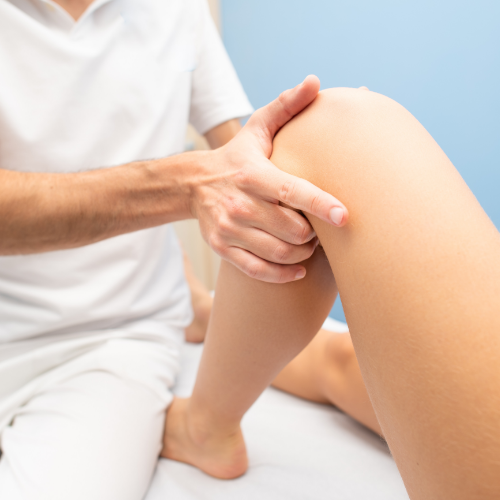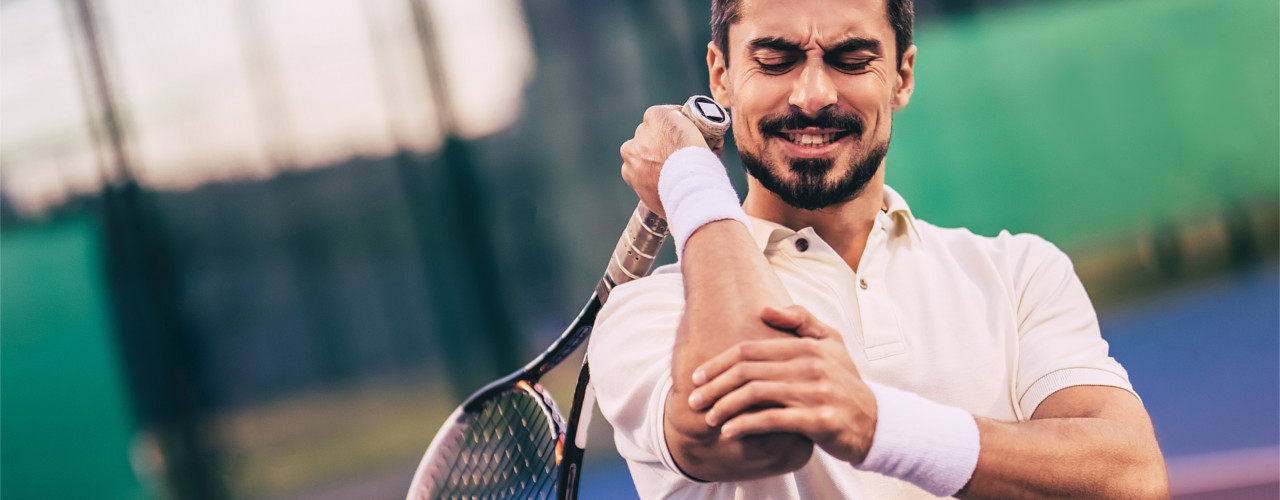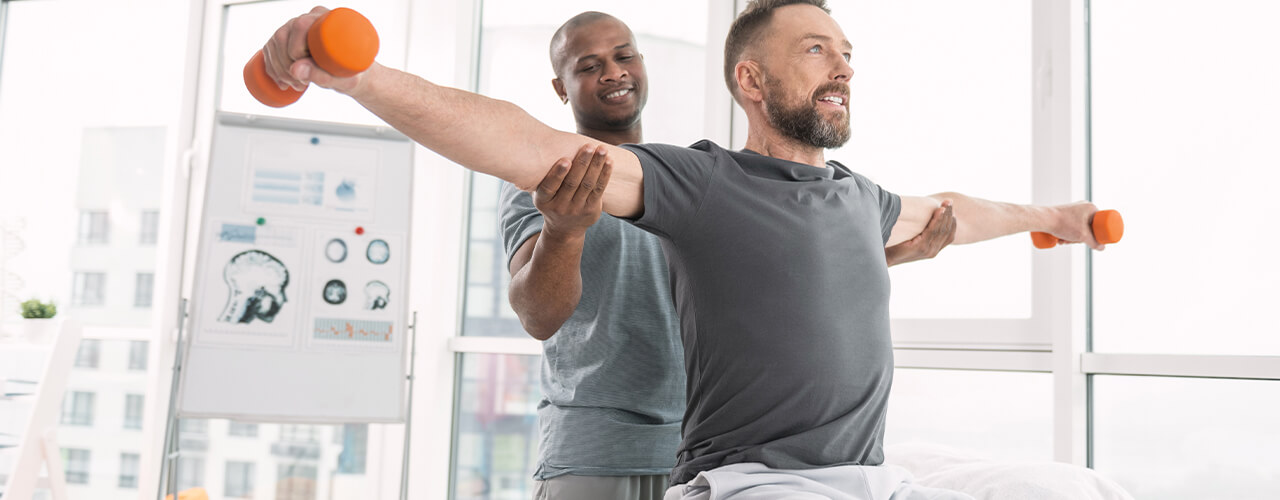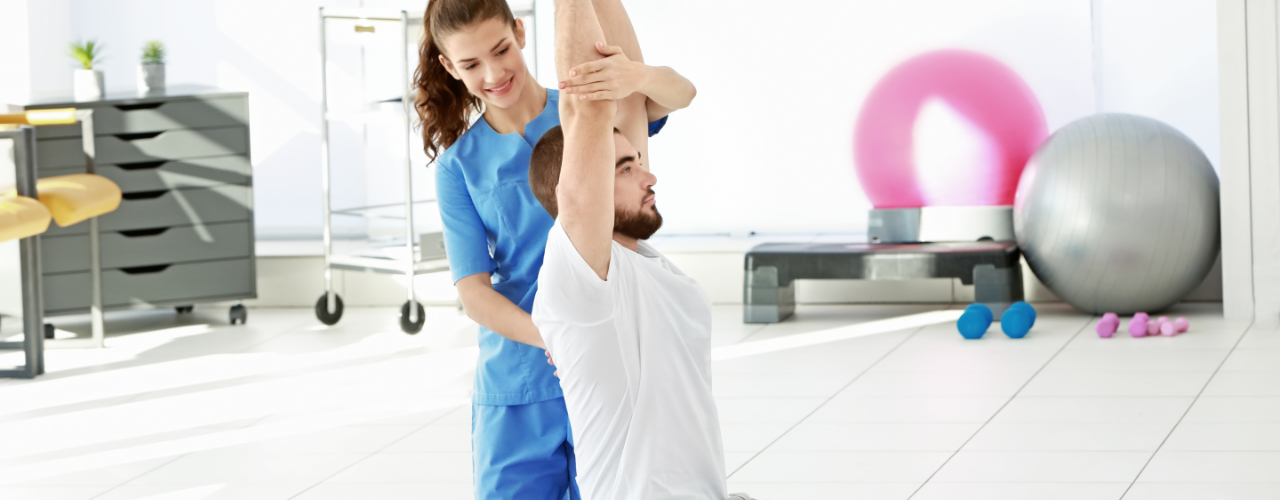Relieve Your Knee Pain at Full Potential PT!

Knee injuries and knee pain are common and occur in two main categories of onset. Traumatic injuries from sports and falls are one major source. Participation in sports is at an all-time high in our country. From traditional sports like football to popular sports like rollerblading and pickleball, and even winter sports like skate and snowboarding — each one requires a diverse range of activities. The variety of stresses landing on the knee is expanding as fast as people’s desire for physical challenge. Unfortunately, the knee is not built to rotate or translate with much amplitude so ligament and cartilage damage is a common consequence as the sports become more extreme. Modern surgical methods have made ligament and cartilage injuries a fairly routine procedure and combined with a proper physical therapy rehabilitation program, a person can be back in action often with full function in a year or less after major knee surgery. The world of sports medicine has advanced light-years from 40-50 years ago in terms of surgical procedures and rehabilitation strategies. This has benefitted the professional athlete all the way down to the occasional runner who just wants to stay active in terms of what modern medicine has to offer. Physical therapy has formed a strong partnership with the orthopedic surgeon since most post-op situations need PT for the surgery to reach its full potential.
The second class of injuries relates to overuse problems around the knee such as Patellofemoral tracking syndrome, tendonitis, or ITB syndrome. Since running is the basis for many sports, an imbalance in what is called the functional kinetic chain from the foot to the pelvis could be responsible for knee pain. Physical therapy is the only profession that will approach the issue with a wide-angle lens to identify the right targets to treat and build support around the knee for repetitive stress.
What Causes Knee Pain?
Your knees are hinge joints that allow for the forward-and-backward motions within the joint.
The knee is one of the largest joints in your body, made up of a complex system of bones, tendons, and ligaments. Because of this, the knee can be easily injured due to overexertion or repetitive motions. Additionally, knee pain can be caused due to an underlying ailment. Some of the most common causes of knee pain are sprains, strains, fractures, tears, dislocation, tendinitis, bursitis, and arthritis.
Common Conditions Our Physical Therapists Help:
- Post-surgery recovery and rehab
- Meniscus pain and problems
- Sports injuries
- Ligament injuries
- Patellofemoral Tracking syndrome
- ITB syndrome
- Muscle tightness and inflammation.
What Can I do to Relieve Knee Pain?
There are some actions you can take on your own to relieve your knee pain, including wearing properly fitted shoes, using hot and cold remedies, stretching, and taking breaks from physical activity when noticing painful flare-ups. However, physical therapy is the best way to find consistent, long-lasting relief for your knee pain. Through manual therapy, strength training, flexibility training, balance training, and pain-specific exercises, physical therapy can get your knees moving comfortably once again.
How do you Diagnose Knee Pain?
Our physical therapists will examine your knee for signs of misalignment or structural damage, in addition to examining your stance, posture, gait, and range of motion. If needed, additional tests (such as x-rays) may be conducted. This will help determine the cause of your knee pain so we can treat it accordingly. After your initial evaluation is complete, your physical therapist will prescribe a physical therapy plan specifically for you, aimed at relieving unnatural stresses and strains, and normalizing your joint function.
How do I Get Rid of Knee Pain?
Frequently consulting with a physical therapist is the best way to continually manage your knee pain. Having a regular physical therapy checkup ensures that your joints are working at their peak performance. In addition, any problems will be discovered early, preventing the onset of arthritis and joint injury. If you do have arthritis or have had surgery, then a regular physical therapy check-up is especially important, in order to make sure that your knee pain remains at bay.
For more information, contact Full Potential Physical Therapy today at Holland, MI center.
Related Case Studies
The patient was discharged from physical therapy due to reports of 100% improvement since the start of therapy. He no longer is having any pain in the right knee and is able to perform his daily tasks without any difficulty. He was educated on the use of his home exercise program to maintain gains in strength and range of motion as well as manage any future flare ups in the right knee.
Patient was discharged from physical therapy due to reports of 80% improvement since the start of therapy and no longer experiencing any pain in the right knee. She is able to perform her daily tasks without any difficulty. She is able to walk longer distances and has been challenging herself to utilize stairs more. She signed up for Evergreen Commons to begin a regular physical activity regime which was one of her goals at the start of therapy. She was educated on the use of her home exercise program to maintain gains in strength and range of motion.
A Better Life is Only Four Steps Away
Physical therapy can be an unfamiliar experience for many. To orient new patients to the process, we have divided their rehab journey into four segments called “The Four Phases of Getting Better.” It is important to note that while there are four phases utilized over the course of your care, they are not totally separate. They move gradually toward greater strengthening and function, which is the end goal to return confidently to the life you desire to live.
1
Pain Relief
The first focus in getting better is pain relief. After your evaluation, your physical therapist will use hands-on techniques or manual therapy, light therapeutic exercise, and education on how to modify your activity and posture in order to give you more control over your pain. In this stage, modalities like ice, heat, myofascial release, electric stimulation and kinesiotape may be used.
2
Improve Mobility/Flexibility
The second step in this method is to improve mobility and flexibility. Your therapist will design a progressive program of range of motion and light stretching to restore mobility and reduce pain.
3
Improve Strength/Control
In the third step of this method, muscle weakness will be addressed to help you maintain the gains and momentum you achieve through phases one and two. A thorough strengthening process is the step that gives results that last, and this will prepare you for more functional training – the final step.
4
Functional Training
Now that your pain is resolved and you have the necessary mobility and strength, your program can be advanced into functional training. Whether you are returning to work, returning to life after post-op rehabilitation, getting back into recreation or sports, or simply returning to the activities of daily life, this step helps ensure your success after graduation and empowers you to be confident in your abilities again.

Reach Your Full Potential & Live Pain-Free!
Book A Free Consultation
Book a Free Consultation Today to Find Out How Physical Therapy Can Help You Find Relief!
request an appointment
Reach Your Full Potential and Live Life Pain-Free! Request an Appointment to Get Started Today!






